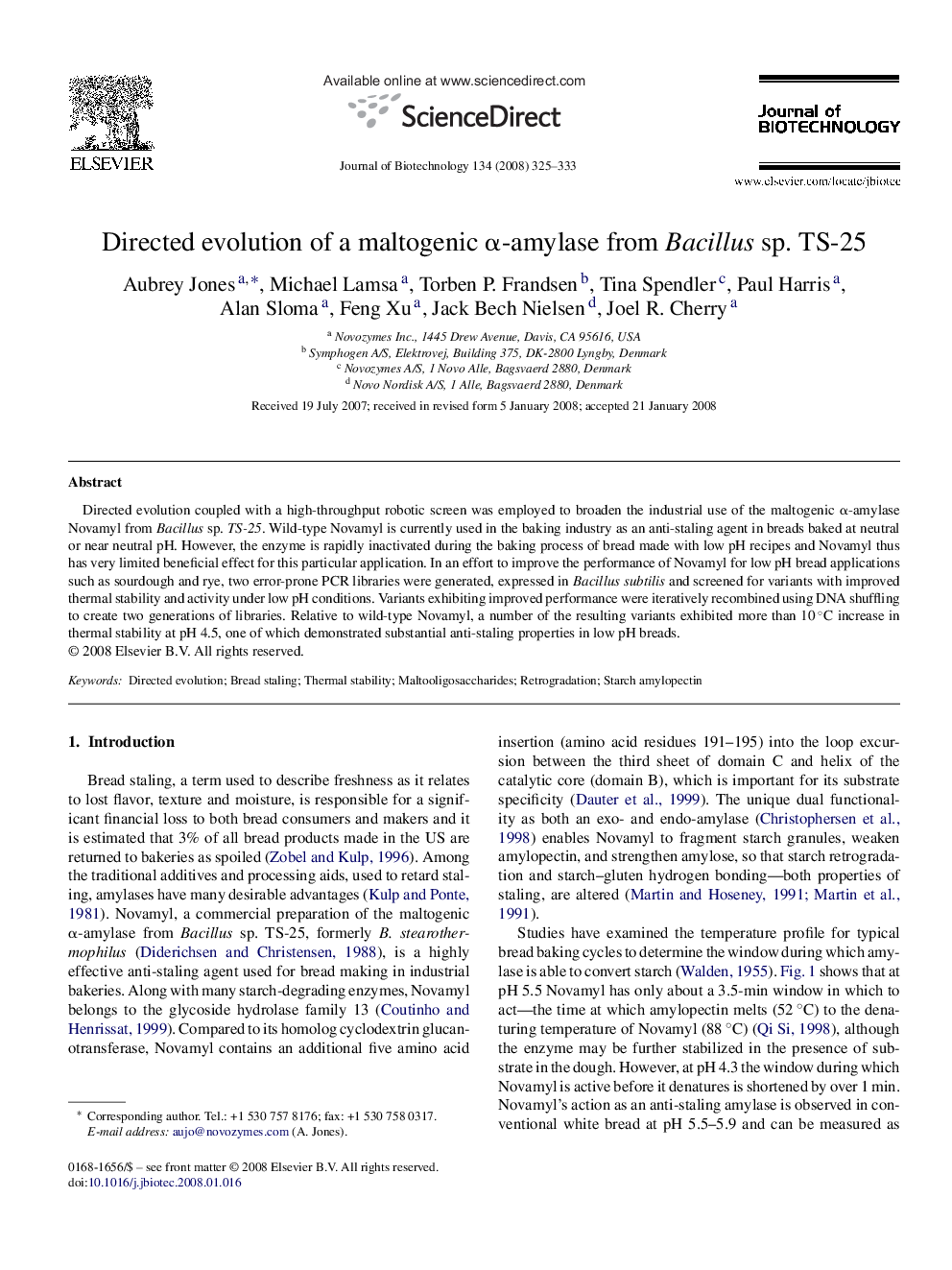| Article ID | Journal | Published Year | Pages | File Type |
|---|---|---|---|---|
| 24785 | Journal of Biotechnology | 2008 | 9 Pages |
Directed evolution coupled with a high-throughput robotic screen was employed to broaden the industrial use of the maltogenic α-amylase Novamyl from Bacillus sp. TS-25. Wild-type Novamyl is currently used in the baking industry as an anti-staling agent in breads baked at neutral or near neutral pH. However, the enzyme is rapidly inactivated during the baking process of bread made with low pH recipes and Novamyl thus has very limited beneficial effect for this particular application. In an effort to improve the performance of Novamyl for low pH bread applications such as sourdough and rye, two error-prone PCR libraries were generated, expressed in Bacillus subtilis and screened for variants with improved thermal stability and activity under low pH conditions. Variants exhibiting improved performance were iteratively recombined using DNA shuffling to create two generations of libraries. Relative to wild-type Novamyl, a number of the resulting variants exhibited more than 10 °C increase in thermal stability at pH 4.5, one of which demonstrated substantial anti-staling properties in low pH breads.
